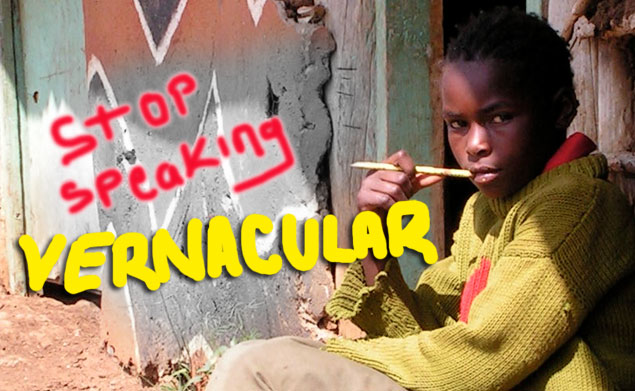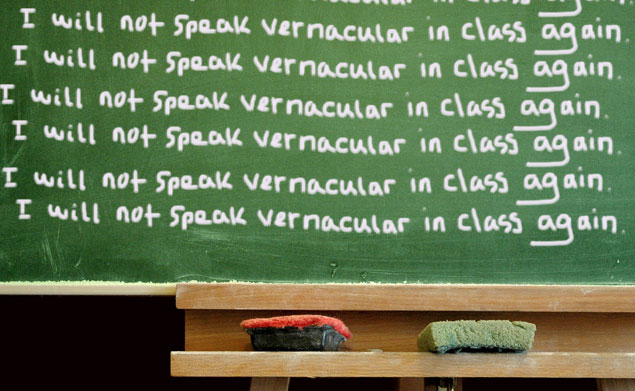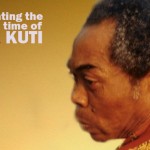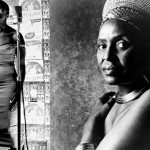“Please teacher somebody is speaking vernacular in class” Ama said.
“Ehi!!! who is speaking vernacular?”, the teacher replied. With a smirk on her face, she points her finger at Yakubu. “Ohh!!! what did I say Ama? I don’t like that”, Yakubu replied back; scared and ready for war with his lie. Unfortunately, Olu heard it too and rats on him. “You said, mi ti paa mi” (I got a headache)
“Come here”, the teacher grabs his cane and viciously whips Yakubu to the ground, with cane marks all over his body. His crime, Speaking Vernacular.
Wait a minute, let us define Vernacular. According to the dictionary, vernacular a derivative of the Latin word “vernaculus (native)”, meaning the native speech or language of a place. Wikipedia further explains vernacular as a mother tongue and mother language of “a population located in a country or in an area defined on some other basis, such as a locality. Per esempio, Navajo is a local language in the southwest of the United States, and English is the state language of a number of countries.”
Growing up in Ghana, we were not allowed to speak our native tongue anywhere around school. It was more of a taboo, at least in my eyes.The punishment was cane whipping. I never understood the idealogy of why English, which is a foreign language, had more power than our native language, and why it had such a negative connotation. Tuttavia, I dared not ask why. It was a simple law without an explanation. My assumption was that it was probably a way to help us improve our english.
As I grew older and left home to school in the US, I was always in shock when I heard my Latino friends speak Spanish in and out of class,especially when the professor was around. Anytime they spoke, my heart will jump for a second with an echo in my mind “stop speaking vernacular”. What was meant to be my language to embrace became a physiological trauma for me. Gradually it wore off and I began to see the beauty of my language. I would drive by and even play my High Life music and other African music loudly in my car. Some will walk and ask about the music. I will speak broken english with my friends who were from other African countries. My Latino brothers and sisters taught me that it was OK to embraced my culture through language.
Have you ever wondered why it was a taboo to speak our local language in school? Did it somehow make you look down upon your rich language or feel embarrassed when your parents spoke vernacular to you in public?
I can understand the need of learning english which is one of the universal languages out there, but why does that result necessitate the eradication of vernacular in our school systems. The psychological implications it brought and loosing the taste and flair on my language. While in the latter part native language was implemented in our studies and was to be spoken only when that class was in session, many of us were still left with a negative perception of out native language. Some will say that this was the result of European hegemony. I to some extent i think it was. Tuttavia, one thing I have learned is that we have the power to change not only our perception of ourselves and culture, but also people’s perception. It is time that we embrace our native languages and cultural practices. It is time that we start the revolution and show the beauty in cultural practices that have been branded taboo.
A language is easily learned when young and when easily spoken among people who speak it. Ghana has about 79 languages and I only know one. Growing up, I was in class with people who I could have easily learned at least three other different languages from playing with them. Tuttavia, due to the culture of the school system and their ban against speaking your native tongue/vernacular in class, I was deprived of the opportunity to enrich myself through the acquisition of other languages. I have other African and Caribbean friends who have expressed to me their similar experiences about speaking their native languages at school and the negative impact this experience had on them in their embrace of their roots and culture. It is time that we change this practice and promote and embrace our native languages so that the younger generations can grow up with a love and appreciation of their roots and culture.
Ultimi post di cadmin (vedi tutti)
- La storia di un ragazzo del ghetto - Giugno 28, 2015
- The Rise of The Next Gen. Marley’s | Bob Marley’s grandsons (VIDEO) - Maggio 8, 2015
- Nel frattempo da qualche parte in Svezia, questi ballerini africani svedesi… - Marzo 24, 2015





